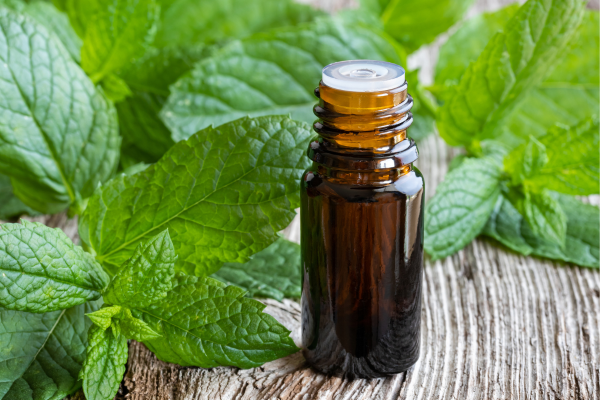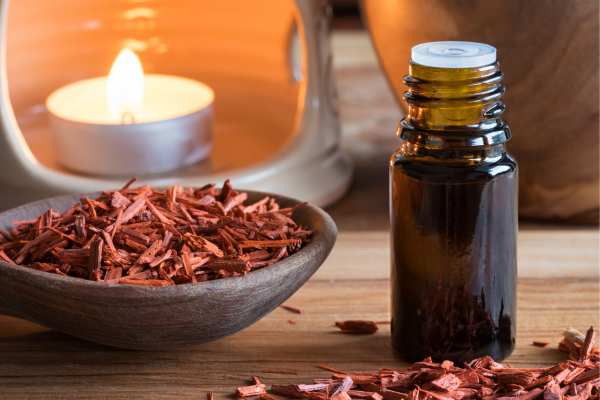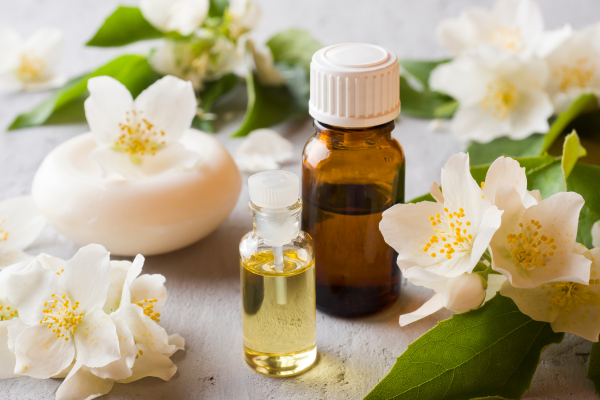In today’s fast-paced world, stress has become a common yet challenging part of life, often leading to a range of health issues. Essential oils, known for their aromatic and therapeutic properties, offer a natural way to alleviate stress. Historically, these oils have been used in various cultures for relaxation and mental well-being. This blog post delves into the benefits of specific essential oils in managing stress, providing insights into their unique properties and practical ways to incorporate them into everyday life for better stress management.
Lavender

Lavender oil is renowned for its calming properties, making it a top choice for stress relief. Its soothing scent directly impacts the nervous system, helping to reduce anxiety and promote relaxation. Studies have shown that the inhalation of lavender oil can significantly decrease the stress hormone cortisol, leading to a more relaxed state. Its versatility allows it to be used in various forms, such as in diffusers, topical applications, or even in baths, providing a tranquil experience that aids in unwinding after a hectic day.
Apart from its stress-reducing qualities, lavender oil is also beneficial for improving sleep quality. People with sleep disorders have reported better sleep patterns after using lavender oil, attributing to its sedative properties. Its ability to enhance the quality of rest is particularly useful for those whose stress leads to sleep disturbances. Lavender oil’s gentle nature makes it suitable for most people, including children and the elderly, making it a universally accessible remedy for stress and sleep-related issues.
Chamomile

Chamomile oil, derived from the chamomile plant, is another natural remedy widely used for stress relief. Its soothing effect is akin to that of a calming herbal tea, often associated with relaxation and sleep. The oil contains compounds that contribute to its anti-anxiety properties, helping to soothe the mind and reduce feelings of stress. When used in aromatherapy, chamomile oil can create a serene environment, conducive to relaxation and mental peace.
The versatility of chamomile oil extends to its various methods of application. It can be added to bathwater for a relaxing soak or used in a diffuser to spread its calming aroma throughout a room. Topical application, when mixed with a carrier oil, can also provide soothing effects, especially when massaged into areas of tension such as the temples or neck. The gentle nature of chamomile makes it an excellent choice for those seeking a natural approach to managing stress and anxiety.
Bergamot

Bergamot oil, with its unique citrus scent, stands out for its mood-enhancing properties. Extracted from the peel of the bergamot orange, this essential oil is often used in aromatherapy to uplift the spirit and alleviate stress. Its ability to balance emotions makes it effective in treating feelings of anxiety and depression that often accompany stress. The refreshing aroma of bergamot oil can help clear the mind, providing a sense of rejuvenation and positivity.
Research into the effects of bergamot oil has shown promising results in stress management. It has been found to lower cortisol levels and assist in reducing nervous tension. Bergamot oil can be used in various ways, such as in a diffuser to create an uplifting atmosphere or applied topically in diluted form for a calming effect. It’s particularly beneficial for those who experience stress-related mood swings, offering a natural way to stabilize emotions and promote mental well-being.
Peppermint

Peppermint oil is acclaimed for its invigorating properties, which can be particularly beneficial in relieving stress-induced symptoms. Its refreshing aroma is known to alleviate mental fatigue and enhance focus, making it an excellent choice for those seeking a natural energy boost. The oil’s cooling sensation is also effective in soothing tension headaches, a common side effect of stress. By stimulating the mind and reducing physical discomforts, peppermint oil serves as a dual-action remedy for managing stress.
In addition to its mental clarity benefits, peppermint oil also aids in improving breathing, which can be constricted during stressful times. Its menthol content is helpful in clearing respiratory passages, promoting deeper and more relaxed breathing. This aspect is particularly useful in stress management, as deep breathing techniques are often recommended for calming the nervous system. The use of peppermint oil in a diffuser or as a topical application can thus contribute significantly to reducing overall stress levels.
Sandalwood

Sandalwood oil, with its rich and woody scent, is known for its grounding effects. It is often used in meditation and spiritual practices to enhance focus and promote a sense of inner peace. This makes it an excellent choice for individuals seeking to alleviate stress through mindfulness and relaxation. The deep, earthy aroma of sandalwood oil can help in anchoring the mind, reducing the scatter that often accompanies stressful situations.
Moreover, sandalwood oil is known for its ability to promote mental clarity and calmness, making it beneficial for those experiencing anxiety or chronic stress. It helps in soothing an overactive mind, allowing for better decision-making and emotional balance. This oil can be used in various forms, such as in incense, diffusers, or applied topically in combination with a carrier oil. Its long-lasting fragrance and calming properties make it a valuable tool in the arsenal against stress.
Lemon

Lemon oil, recognized for its clean and refreshing scent, plays a significant role in enhancing mood and energy levels. The uplifting aroma of lemon oil is known to combat feelings of fatigue and lethargy often associated with stress. Its ability to improve mental alertness and concentration is particularly helpful in work or study environments where stress can impact cognitive performance.
Additionally, lemon oil possesses properties that can help in reducing anxiety and promoting a positive mindset. It works by creating an environment conducive to relaxation and mental clarity. The oil can be used in a diffuser to brighten up any space or diluted and applied topically for a more personal experience. The refreshing nature of lemon oil makes it a popular choice for those seeking a natural way to uplift their spirits and combat stress.
Jasmine

Jasmine oil, known for its exotic and sweet aroma, has been used for centuries for its stress-relieving properties. The oil is often associated with relaxation and a sense of well-being, making it an ideal choice for those dealing with stress and anxiety. Its soothing fragrance is believed to have a calming effect on the nervous system, helping to ease tension and promote relaxation.
Studies suggest that jasmine oil can be as effective as some pharmaceuticals in calming the nerves without the risk of side effects. It is commonly used in aromatherapy to elevate mood and alleviate feelings of depression that can accompany stress. Jasmine oil can be used in diffusers, added to bathwater, or applied topically in diluted form. Its romantic and uplifting scent makes it a favored choice for creating a relaxing and stress-free environment.
The Bottom Line
In conclusion, these essential oils offer diverse and natural ways to combat stress. From the calming effects of lavender and chamomile to the uplifting properties of bergamot and lemon, each oil brings unique benefits to the table. The use of peppermint and sandalwood in promoting mental clarity and focus further underscores the versatility of essential oils in managing stress. It’s important to remember that while these oils can provide significant relief, they should be used wisely and in moderation. For those new to essential oils, starting with small amounts and observing how the body reacts is advisable. Ultimately, incorporating these natural remedies can be a valuable part of a holistic approach to stress management.


